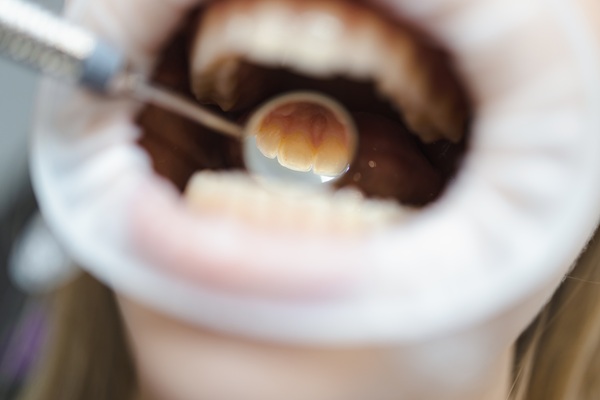Thick mucus, bad breath, and a stuffy nose may signal you have a dental sinus infection. Dental sinus infections can cause various uncomfortable symptoms requiring professional care and treatment. The condition often occurs from tooth decay infections that spread to the sinus cavity via the nasal passages.
A dental sinus infection usually affects the surrounding tissues in the facial area, resulting in unpleasant and uncomfortable sensations that include bad breath and soreness of the cheeks. A trip to the dentist can help you detect the earliest signs of dental sinus infections for fast treatment to avoid further infection and more medical complications that may arise from the condition.
What Is Dental Sinus Infection?
Dental sinus infections may cause symptoms similar to regular toothaches. However, the pain and discomfort from each condition stem from different sources. A dental sinus infection originates from the sinus cavity near the nasal region and tooth roots. Pain that comes from the top-rear molars, which are close to the sinuses, may produce a similar sensation, whereas pain that resonates from other teeth could indicate a non-sinus dental issue.
Cause of Dental Sinus Infection
Tooth decay is the usual cause of dental sinus infections. An infected upper-rear molar might result in bacteria deposits within the sinus lining and cavity. The gradual decay of the surrounding bone might worsen the bacterial infection, leading to sinusitis.
Common Symptoms of Dental Sinus Infection
A dental sinus infection typically only affects top-rear molars near the sinus cavity and may cause multiple recurring symptoms.
Congestion and Sinus Pressure
The roots of infected teeth may extend deep into your sinus cavities, where inflammation can cause a pressure buildup in the area. The maxillary sinuses, the large sinuses behind your cheekbones, are most prone to dental complications. An untreated dental sinus infection could result in persistent congestion and pressure, the common symptoms of sinusitis.
Sinus Pain
Inflammation around the tissue of decaying teeth roots may cause complications around the sinus cavity, such as pus accumulation. The gradual buildup of pus applies pressure against narrow and sensitive sinus walls, resulting in pain and discomfort.
Runny Nose
Swelling and inflammation within the sinus cavity can irritate the nasal passage, triggering the production of excess mucus and runny nose symptoms. Untreated runny nose symptoms could gradually worsen congestion and even cause breathing issues.
Post-nasal Drip
Undetected tooth decay could trigger long-term sinus infections and post-nasal drips. The symptoms arise from a condition known as maxillary sinusitis of endodontic origin (MSEO), where the bacteria could result in years of recurring sinus flare-ups.
Headaches
The congestion of sinus passages caused by dental sinus infections leads to accumulated pressure and pain. The uncomfortable sensations may gradually cause headaches from either a single side or both sides of the head.
A migraine or headache caused by a dental sinus infection usually worsens when you bend your neck forward. These sinus-related headaches often present accompanying symptoms such as a runny nose and congested nasal passages.
Toothaches
Infection from the rear molar may spread to surrounding teeth, causing further dental complications. Likewise, due to the proximity between the sinus cavity and top-rear molars, an infected sinus may affect dental roots, resulting in toothache. As such, you might experience dental sinus infection despite healthy mouth care practices.
Facial Swelling
Bacteria and viruses built-up from dental sinus infections cause inflammation in your cheek and surrounding tissues, which leads to swelling.
Dental Sinus Infection Treatment
A trusted dental expert can help you resolve the symptoms of dental sinus infection by first determining the underlying cause of the issue to provide the most suitable solution. Treatment options include oral antibiotics, root canal therapy (that eliminates bacteria from infected areas), decongestants, and pain management medication. Dental specialists may recommend tooth extraction in cases where the condition of an infected tooth has advanced beyond repair. Extracting the affected tooth prevents the infection from spreading further while protecting the affected areas.
Your trusted dental expert might recommend a combination of treatments depending on the severity of your dental sinus infection. Alternatively, preventive measures like steam inhalation treatment or the daily use of a saline spray can moisten your nasal passages to help you avoid infections.
To Treat Dental Sinus Infections, Choose a Trusted Expert
It is essential to practise good oral hygiene and visit a dentist regularly for check-ups and cleanings to prevent dental sinus infections. Also, it is vital to seek specialised dental care fast since untreated dental sinus infections can lead to severe cellulitis or abscess.
A quick visit allows our accredited experts to determine the source of infection to prescribe the appropriate treatment for fast relief. The professionals at Bellevue Hill Dental have decades of experience in treating tooth-related conditions such as dental sinus infections and occlusion. Our friendly experts offer personalised state-of-the-art dental treatments that alleviate your symptoms in the safest possible way.Book an appointment with Bellevue Hill Dental Today!
Frequently Asked Questions
Can a tooth infection cause sinus symptoms?
Yes. Infections in the upper molars can spread to the sinus cavity, resulting in dental sinusitis.
Will antibiotics cure a dental sinus infection?
Not permanently. While they may ease symptoms, definitive treatment of the dental cause (root canal or extraction) is required.
Can sinus surgery fix this?
Only in cases where inflammation persists after dental treatment. Often, treating the tooth resolves the sinus issue.




